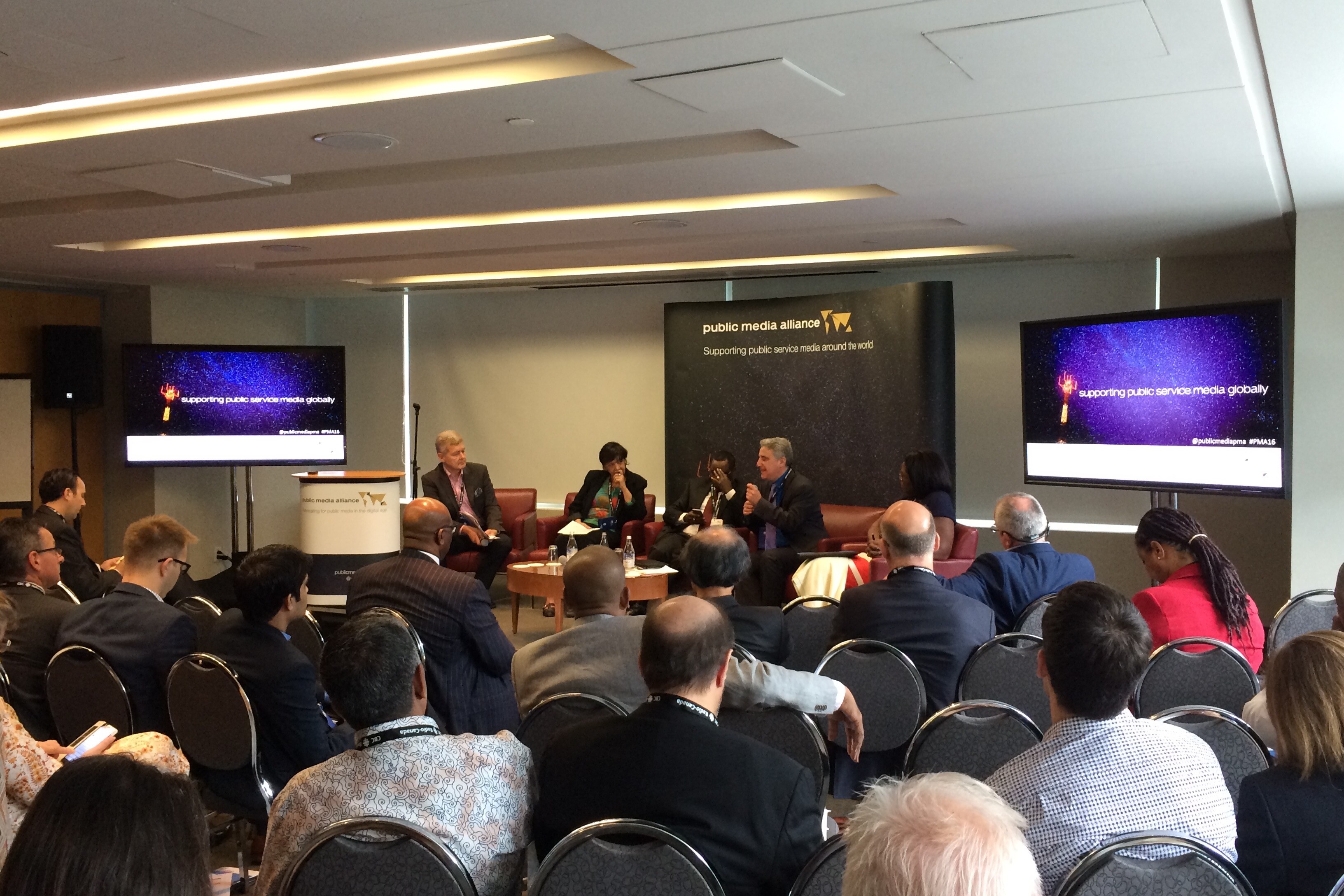The Governor of the Australian state of Queensland, Penelope Wensley, has opened the 29th Commonwealth Broadcasting Association General Conference in Brisbane. In her welcoming speech, in front of an audience of broadcasting professionals who had travelled thousands of miles from all over the world, she expressed her commitment and support of The Commonwealth as a whole. “I’ve always thought it was an undervalued organisation” she said, “but I know, and I’ve seen at first hand, the difference it can make, working in a quiet, low-key but very professional way, drawing on its network of connections.”
Delegates have travelled from Botswana, Canada, India, Pakistan, Thailand and Tonga, to name just a few, for this year’s conference, focusing on crisis, disaster and emergency. Mark Scott, AO, MD, ABC, opened the sessions this morning, with Genevieve Bell, Intel, following to lead the first keynote ‘Telling the Stories of the Future: Technology, Culture and What Really Matters’.
What does the technological future look like? Don’t ask a tech savvy teenager, ask women in their 40s, 50s and 60s because they’re the ones doing most of the surfing, texting, skyping, and social networking. That’s according to the dynamic social scientist and anthropologist, Dr Genevieve Bell, who works for Intel and in 2010 was included in a list of the 100 most creative people in business. She pulled a string of surprising facts out of the hat, forcing her CBA audience to reassess what they thought they knew. She was fast, articulate and inspiring, using some of her own quirky photographs to reinforce her points. The first photo was of a red headed, curly haired, freckly child with a broad smile, growing up in an Aboriginal community. It could only have been Genevieve, and she showed it partly to explain where her curiosity about people came from. And by the way, she can extract water from frogs, she said ….
Many of the broadcasting professionals she was addressing had their iPads, laptops and Smartphones in front of them and were making full use of the freeWi-Fi, but she reminded them that “the internet is not ubiquitous” and “connectivity is complicated”. In first-world Brisbane, the host city of the CBA conference, getting online content is cheap and easy, but in India, for example, where there are 850 million mobile phones (but not Smartphones) you need to go to the “media man”. For a nominal fee, he’ll sell a “weekend package” which includes lots entertainment, including Bollywood content. It might not stick to copyright rules, but it shows how one way or another, content will always be circulated.
Sometimes it seems that everyone, wherever you go, is plugged in, but Genevieve Bell described how being disconnected is now extremely valuable and aspirational. We’re familiar with mobile-free train carriages, but what about “black hole resorts” recently advertised in a Qantas travel magazine? Being ‘uncontactable’ is a selling point, and as we buy more gadgets we’re starting to question where we should use them (iPads in bed?). There’s one piece of technology though that Dr. Bell’s research seems to suggest is exempt from all this. It’s the old fashioned radio: accepted everywhere, all the time.
Related Posts
15th December 2016
Call for Papers: Future of Journalism Conference 2017
The sixth biennial Future of Journalism…


